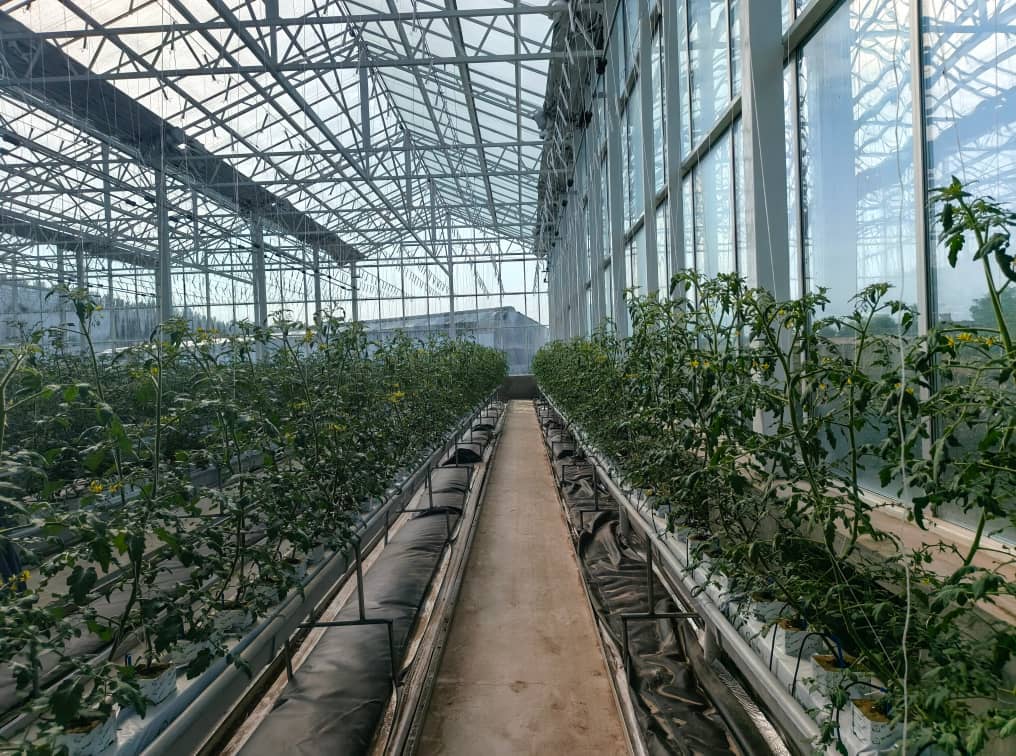
By Yussif Ibrahim, GNA Special Correspondent in China, courtesy China Embassy in Ghana
Yinchuan, Ningxia Sept. 17, GNA – In the heart of China’s Ningxia Region, a quiet agricultural revolution is taking place at the Ningxia Ecological Garden in the Xingqing District of Yinchuan.
Here, tomatoes are not grown in the soil, but rather in soft cotton and other innovative substrates, a breakthrough, that underscores China’s push to modernise agriculture, boost food security, and promote sustainable farming practices.
At first glance, the sprawling greenhouse structures may look like ordinary farms.
But a closer look reveals state-of-the-art systems that regulate temperature, monitor plant growth, and supply water and nutrients directly to the cotton base where the tomato roots are embedded.
This unique system eliminates the reliance on traditional soil, reduces pest infestation, and ensures that the crops receive balanced nutrition for optimal growth.
“The cultivation of tomatoes in soft cotton is the first of its kind in China,” said Mr. Zhang, a local farmer at the facility.
He said the produce from the garden are supplied to supermarkets in the local market, and harvesting can continue for up to 10 months as the tomatoes ripen.
The soilless tomato production at Ningxia Ecological Garden is part of China’s revolution to integrate advanced technology into agriculture.
Cutting-edge sensors and monitoring systems collect real-time data on plant growth and environmental conditions, allowing precise adjustments to improve yield and quality.
The result is healthier, more nutritious produce with consistent supply throughout the year.
Beyond tomatoes, the ecological garden also cultivates other vegetable varieties using greenhouse technologies, contributing to the diversification of local food production.
The facility is managed under the joint oversight of the Beijing Garden and Ningxia Garden Academy, both key institutions in China’s agricultural innovation ecosystem.
A delegation of 30 African journalists, including three from the Ghana News Agency, who are participating in a seminar for mainstream media executives from Belt and Road countries has visited the facility.
Organised by China Broadcasting International Economic and Technical Cooperation, the programme aimed to expose participants to China’s governance model and the transformative initiatives driving its economy.
For the visiting journalists, the tour of the Ningxia Ecological Garden provided a firsthand look at how technology is redefining agriculture in the 21st century.
Many of them were struck by the way China has adapted research and innovation to address challenges of food security, climate change, and population growth.
China’s soilless tomato initiative aligns with its vision of rural revitalisation and sustainable development.
By investing in agricultural technology, the country is not only enhancing domestic food production but also showcasing models that can be adapted by other nations facing similar challenges.
At the Ningxia Ecological Garden, the future of farming is no longer solely dependent on soil, but innovation, precision, and sustainability.
GNA
Edited by Kwabia Owusu-Mensah/Kenneth Odeng Adade
Post a Comment